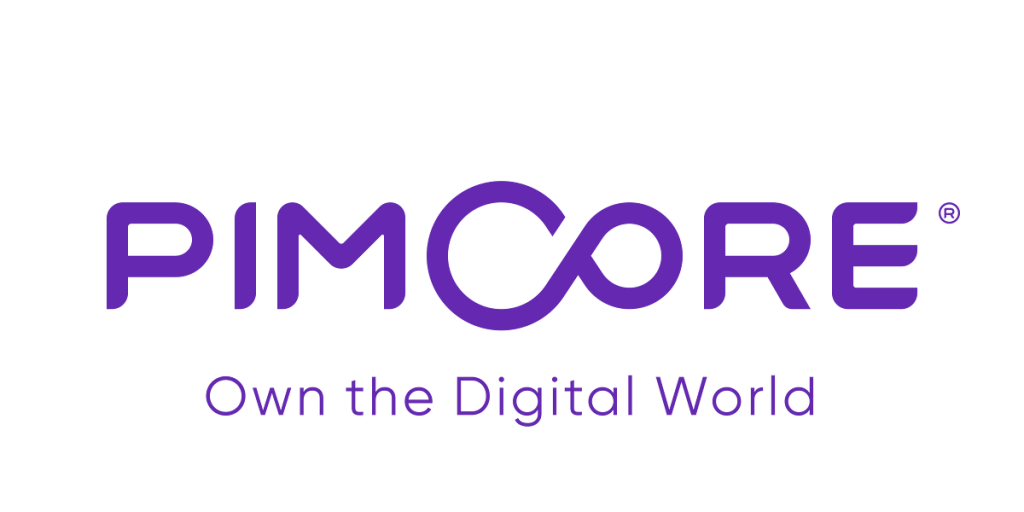
Magento PIM Integration Guide: Benefits, Tools & Tips
- What is a Magento 2 Product Information Management (PIM) System?
- Key Benefits of Integrating a PIM with Your Magento 2 Store
- Who Can Benefit from Magento 2 PIM Integration?
- Requirements for Magento PIM Integration
- Top Magento PIM Integration Systems
- How to Select the Right PIM System?
- Magento PIM Integration Process
- Helpful Tips for Effective PIM Magento Integration
- Conclusion
In this comprehensive guide, we’ll explore how integrating a Product Information Management (PIM) system with your Magento store can transform your ecommerce business’s approach to managing product data.
Your sales and marketing efforts’ efficiency depends on how product data is presented across your website and distribution channels. Tangled taxonomies, incorrect attributes, and poor content quality can demoralize customer interest in your products.
Whether your ecommerce store sells less than a hundred SKUs or has a massive product catalog, the Magento PIM Integration solution can revolutionize how you manage product data.
In this guide, you’ll learn PIM and its key benefits, why Magento stores need PIM integration, the most popular PIM systems, how to integrate PIM with Magento, and tips for effective implementation.
- What is a Magento 2 Product Information Management (PIM) System?
- Key Benefits of Integrating a PIM with Your Magento 2 Store
- Who Can Benefit from Magento 2 PIM Integration?
- Requirements for Magento PIM Integration
- Top Magento PIM Integration Systems
- How to Select the Right PIM System?
- Magento PIM Integration Process
- Helpful Tips for Effective PIM Magento Integration
- Conclusion
What is a Magento 2 Product Information Management (PIM) System?
A Magento 2 Product Information Management (PIM) system is a specialized software solution designed to centralize and streamline product data management for Magento ecommerce stores.
A PIM system is a central repository for all product-related information, including primary data (SKUs, titles, descriptions), taxonomy (categories, attributes), supplier data, technical specifications, media assets, marketing content, and sales data. It allows businesses to collect, enhance, and optimize this product information in a single location, ensuring data accuracy and consistency across multiple sales and marketing channels.
While PIM systems can integrate with various ecommerce platforms, solutions specifically designed for Magento 2 integration offer seamless connectivity with the Magento environment. These Magento-specific PIM systems are tailored to work seamlessly with Magento’s architecture, enabling efficient data exchange and synchronization between the PIM and the Magento storefront, backend, and other integrated systems.
Magento 2 PIM Integration systems typically provide features such as:
- Automated import and export of product data to and from Magento
- Centralized management of product attachments, catalogs, categories, and attributes
- Enhancement and optimization of product content (descriptions, images, videos)
- Localization and translation of product information for international markets
- Workflow management for product data approval and publishing processes
- Integration with other Magento modules and third-party systems
With the Magento 2 PIM Integration system, businesses can gain confidence in managing complex product catalogs, ensuring data consistency across channels, and streamlining product information workflows. This ultimately leads to improved time-to-market, sales performance, and customer experiences, providing tangible benefits for your business.
Key Benefits of Integrating a PIM with Your Magento 2 Store
Here are some key benefits of integrating a PIM with your Magento 2 Store.
Enabling Omnichannel Experiences
Integrating a PIM solution ensures consistent and up-to-date product information across all sales channels, including your Magento storefront, marketplaces, social media, and more. This enables a seamless omnichannel experience for customers.
Facilitating Personalization
Enriching and centralizing product data allows for personalized marketing, targeted recommendations, and tailored sales proposals, driving better engagement and conversions.
Ensuring Reliable Data
A PIM acts as a single source of truth, categorizing, deduplicating, and regularly updating product information to maintain accuracy and reliability across systems.
Centralized Product Information Hub
The PIM is a centralized repository for all product data, including descriptions, media assets, technical specifications, and more, making it easily accessible to sales and marketing teams.
Improved Marketing Strategies
With access to a prosperity of organized product data, marketers can develop more effective campaigns, conduct A/B testing, and create detailed, personalized messaging.
Localized Information
PIM systems accommodate multilingual content, regional currencies, and other localization features, enabling businesses to modify product information for specific markets.
Streamlined Taxonomy Management
PIM software helps manage and optimize product taxonomies, categories, attributes, and relationships, improving cross-selling and upselling opportunities.
Additionally, the PIM integration brings benefits like automation of manual tasks, data quality assurance, improved employee productivity, shortened time-to-market, simplified integration with other systems, and the ability to manage multiple storefronts from a single product catalog.
Who Can Benefit from Magento 2 PIM Integration?
Ecommerce businesses that sell their products through multiple sales channels can benefit from implementing a Magento PIM system, which helps provide consistent and up-to-date product data across various customer touch points
Requirements for Magento PIM Integration
Before starting the integration process, ensure you have fulfilled all these requirements. We’ll provide a detailed list of these requirements, including technical, organizational, and resource-related requirements, to help you prepare for the integration process and ensure a smooth execution.
Technical Expertise
Having a dedicated Magento expert within your technical team is crucial. This individual, with their in-depth understanding of the Magento platform and the integration process, plays a key role in ensuring efficient maintenance, troubleshooting, and overall optimization of the integration process, thereby contributing significantly to the success of the integration.
Data Structure Planning
When we talk about data structure planning, we’re referring to the process of carefully organizing and categorizing your product data in a way that makes sense for your business and the PIM system. This involves defining product attributes and fields for products and variants and considering the number of channels that will be integrated with the PIM. A well-defined data structure ensures seamless integration and accurate data management across platforms.
Key Data Monitoring
Monitor and keep track of all essential data that needs to be connected to Magento, including simple products, configurable products, and marketing materials such as digital assets. Monitoring critical data enables effective product information management and ensures a smooth integration.
Magento Hosting
Choose a reliable Magento hosting provider that can support integrating a PIM system with Magento. A robust hosting environment like Devrims is essential for optimal performance, reliability, and the smooth operation of your eCommerce platform during and after the PIM integration.
Integration Capabilities (APIs, Connectors)
Evaluate the PIM solution’s integration capabilities, such as APIs and pre-built connectors, to ensure seamless connectivity with the Magento platform. These integration tools can simplify the process and facilitate efficient data exchange between the PIM and Magento systems.
Addressing these requirements is crucial for businesses to build a strong foundation for a successful Magento PIM integration. By meeting these prerequisites, you can prepare yourself and get ready to embark on this transformative journey, ensuring effective product data management, consistent information across channels, and improved overall operational efficiency.
Top Magento PIM Integration Systems
Here is the list of the top 9 PIM systems for Magento 2 integration. We’ll provide a brief overview of each system, highlighting their key features and benefits, to help you make an informed decision when selecting a PIM system for your Magento 2 integration.
Akeneo PIM

Akeneo is an open-source SaaS PIM platform that enables vendors to build a compelling product experience inside the system and across marketing, sales, and customer support channels. It can bulk import data from various sources and deliver product information relevant to each channel and region.
Key Features:
- Open-source and community-driven
- User-friendly interface
- Strong data enhancement features
- Translation and localization capabilities
- Project management tools
Salsify

Salsify is a cloud-based PIM for Magento, identified as a “ProductXM” solution focused on developing better customer product experiences. It offers a range of tools, including analytics and product optimization features, making it an ideal choice for businesses actively using Instagram, Facebook, and other social channels for distribution.
Key Features:
- Bulk product editing
- Optimized collaborative workflows
- Analytics and product optimization tools
- API integration
- Dedicated customer service
PIMworks

PIMworks is a cloud-based Magento PIM system that leverages advanced AI tools and technologies to streamline data enrichment, reporting, and workflow management processes. It offers an impressive workflow management module, enabling efficient task assignment, progress tracking, and cross-team collaboration.
Key Features:
- AI-powered data enrichment and reporting
- Workflow management module for task assignment and collaboration
- Automated data validation and quality control
- Customized pricing and a free trial is available
- Seamless integration with Magento 2
inRiver PIM

inRiver PIM is an enterprise-grade, centralized SaaS platform designed to manage, organize, enrich, and distribute complex product information across multiple channels. It offers advanced capabilities such as its Elastic Data Model, Planner App, and inRiver Evaluate feature for optimizing product placement and SEO.
Key Features:
- Enterprise-grade solution for complex product data
- Elastic Data Model for Flexible Data Organization
- Planner App for workflow management
- inRiver Evaluate for product placement optimization
- Robust partner ecosystem and integration support
Bluestone PIM

Bluestone PIM is an enterprise SaaS solution that enables cross-team collaboration and streamlines product information management processes. Its MACH-certified architecture (Microservices-based, API-first, Cloud-native, and Headless) offers seamless integration capabilities with various ecommerce platforms, including Magento 2.
Key Features:
- Cloud-based and MACH-certified
- Seamless integrations with Magento 2 and other systems
- Tools for data validation and consistency
- Supports omnichannel commerce strategies
- Advanced dashboard and analytics tools
Pimcore

Pimcore is an open-source enterprise-grade framework with paid editions that include free features like PIM, MDM, DAM, and CMS. It allows direct integration with Microsoft Office and Adobe applications, enabling access to product information from the PIM right inside these apps.
Key Features:
- Open-source with commercial enterprise edition
- Combines PIM, DAM, and CMS functionalities
- Microsoft Office and Adobe integration
- Data quality control tools
- Auditing and versioning features
Magnitude Agility

Agility PIM by Magnitude offers a configurable, role-based interface for efficient user experience. It is particularly well-suited for companies that work extensively with printed assets, providing tools for transforming raw product data into custom catalogs across multiple languages and pricing options.
Key Features:
- Configurable role-based interface
- Product data syndication across channels
- Data integration module for seamless connectivity
- Business analytics toolkit with BI integration
- Catalog production management capabilities
Jasper

Jasper is a leading SaaS PIM solution that is suitable for small businesses and enterprises. It is central storage for all product data, enables two-way data syncs across connected systems, and supports numerous currencies and languages across all ecommerce channels and storefronts.
Key Features:
- Custom attributes management
- Scheduled pricing automation
- Category management capabilities
- Activity tracking and auditing
- Custom product relationships
FlexiPIM

FlexiPIM is a cloud-based PIM solution designed to simplify and ease complex product data management, particularly for B2B commerce businesses. It lets users quickly set up catalogs with flexible attributes, supporting multi-channel and multi-language capabilities.
Key Features:
- Cloud-based solution for B2B commerce
- Simplifies complex product data management tasks
- Flexible attribute setup for catalogs
- Multi-channel and multi-language support
- Affordable pricing model
How to Select the Right PIM System?
Consider the following points to select the right PIM system.
Align with Business Objectives
Thoroughly assess your business goals, product catalog size, integration requirements with Magento 2, and budget constraints. Selecting a PIM system that aligns with your core needs is crucial for long-term success.
Prioritize Key Functionalities
Evaluate PIM solutions that offer robust data enrichment capabilities, efficient workflow management tools, and multi-channel/multi-language support (if applicable). These features directly impact data quality, productivity, and market reach.
Emphasize Usability and Scalability
Choose a scalable system that can accommodate business growth without disruptions, ensuring seamless data management as your needs evolve.
Vendor Credibility Matters
Research the vendor’s industry reputation, Magento 2 expertise, and customer support offerings. A credible partner with a proven track record and comprehensive support can facilitate implementation and ongoing maintenance.
Leverage Hands-on Evaluation
Take advantage of free trials and demos to experience the PIM system’s functionalities and usability firsthand. Consult industry experts for guidance based on your unique requirements.
Magento PIM Integration Process
Follow the below steps to integrate PIM in Magento:
- Data Import: Import your existing product and category data into the PIM system. This step ensures that all relevant product information is merged within the PIM solution.
- Magento Compatibility Check: Run a Magento compatibility test to verify that the database fields in your PIM system align with the corresponding fields in your Magento 2 platform. This step ensures seamless data synchronization between the two systems.
- Connection Channel Setup: Create a dedicated connection channel within the PIM system to establish a link with your Magento 2 platform. During this step, ensure that the PIM system and Magento 2 database fields have matching names for accurate data mapping.
- PIM Connector Installation: Install the appropriate PIM connector or extension within your Magento 2 environment. The PIM vendors develop some connectors, while third-party companies create others. Choose the connector that best suits your specific requirements.
- Initial Testing: Perform initial tests with a limited set of products to verify that the integration functions correctly. This step allows you to identify and address potential issues before proceeding with the full integration.
- Data Synchronization Validation: Thoroughly check if all product data, including images and custom attributes, are accurately synchronized between the PIM system and Magento 2. Pay close attention to these elements, as they can be more complex during synchronization.
- Full Catalog Integration: If the initial tests are successful, integrate the remaining products in your catalog into the PIM system. This step ensures that your entire product catalog is consolidated and managed within the PIM solution, seamlessly syncing with your Magento 2 platform.
Helpful Tips for Effective PIM Magento Integration
Here are some tips for effective PIM Magento Integration.
- Set your goals and expectations for PIM implementation
- Align PIM with your business strategy and objectives
- Define clear goals, go omnichannel, expand into foreign markets, etc.
- Identify required features like API integration, AI-powered data validation, etc.
- Put aside abundant time for integration and testing
- Allocate 1-2 weeks for PIM implementation
- Reserve 2-3 weeks for thorough testing
- Ask the right questions during a PIM demo
- Ask about storefront preparation for PIM integration
- Inquire about customer experience improvements
- Verify scalability for growing SKU volumes
- Define roles and responsibilities
- Implement proper access controls within the PIM system
- Avoid granting full access to all or restricting access entirely
- Define distinct roles with varying access levels
- Ensure data integrity and enable access to relevant information
- Have a Magento expert on your technical team
- Ensure a dedicated Magento expert is part of your team
- Consider partnering with a Magento development services provider
- Prepare your content for PIM integration
- Optimize product content like high-quality images and descriptions
- Ensure content is up-to-date and consistent
- Plan for ongoing maintenance and updates
- Allocate resources for regular maintenance and updates
- Keep product information accurate and consistent across channels
Conclusion
Integrating a Product Information Management (PIM) system with your Magento 2 store is a strategic investment that can transform your business’s approach to product data management. A PIM solution enables you to deliver consistent, accurate, and improved product experiences across all your sales channels by centralizing and streamlining the flow of product information.
Effective Magento PIM integration requires proper planning, dedicated technical expertise, and a commitment to ongoing maintenance and optimization. By following the tips and best practices outlined in this guide, you can navigate the integration process smoothly and unlock the full potential of a PIM system for your Magento eCommerce operations.







